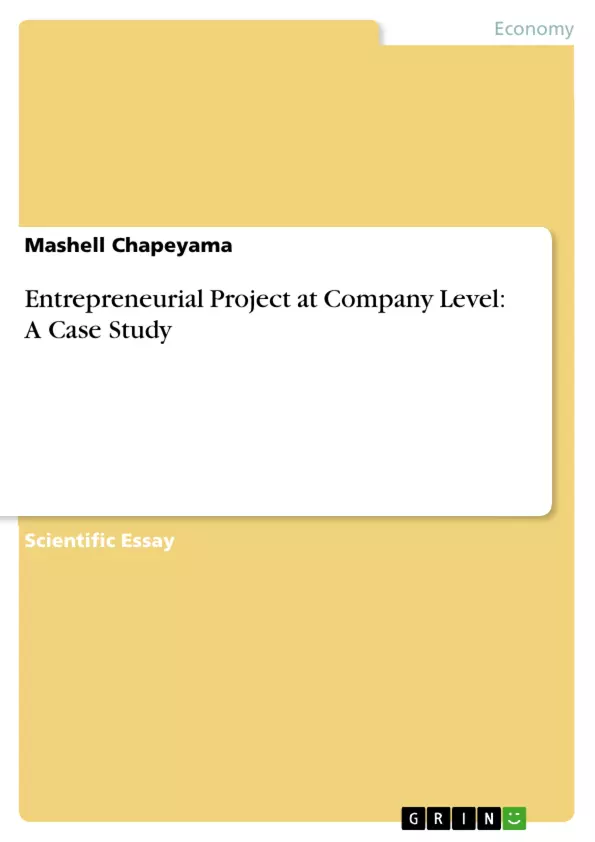The discussion is based on what entrepreneurship is. It also explores the qualities required by people to be successful entrepreneurs. The concept of business plan and proposal is included. The methodology used to implement a revolving fund at Chipinge Banana company has been analyzed. A few other case studies of how revolving fund was implanted on an international scene are also discussed.
Inhaltsverzeichnis (Table of Contents)
- Introduction
- Entrepreneurs
- Innovation
- Determination
- Self-Willingness to Achieve
- Accountability
- Total Quality Management
- Self-Renewal
- Networking
- Global Focus
- Revolving Fund
- Definition
- Purpose
- Scope
- Examples
- Chipinge Banana Company
- Phases of Initiating, Developing and Creating a Viable Fund
Zielsetzung und Themenschwerpunkte (Objectives and Key Themes)
This case study examines the establishment and operation of a revolving fund at Chipinge Banana Company. The author, who is the Human Resources Manager, aims to provide a practical guide to creating and running such a fund, drawing upon their own experience in developing and implementing the fund at the company. The study emphasizes the importance of entrepreneurial skills in achieving organizational success, particularly for senior personnel in profit-oriented companies.
- Entrepreneurial Skills and Attributes
- Revolving Fund Development and Management
- The Importance of Core Values and Global Business Practices
- Balancing Financial Success with Customer and Employee Satisfaction
- The Role of Networking and Social Support Networks in Business Success
Zusammenfassung der Kapitel (Chapter Summaries)
The introductory section highlights the increasing significance of entrepreneurial skills in today's globalized economy, emphasizing the need for all organizational members to embrace entrepreneurial thinking and practices for competitive advantage. The section explores key entrepreneurial skills, including innovation, determination, self-willingness to achieve, accountability, total quality management, self-renewal, networking, and global focus. The chapter examines how these qualities are essential for success, particularly in the context of a revolving fund initiative.
Schlüsselwörter (Keywords)
Entrepreneurship, revolving fund, entrepreneurial skills, innovation, determination, self-willingness to achieve, accountability, total quality management, self-renewal, networking, global focus, core values, business practices, Chipinge Banana Company, case study.
Frequently Asked Questions
What is a revolving fund in a business context?
A revolving fund is a fund or account that remains available to finance an organization's continuing operations without any fiscal year limitation, because the organization replenishes the fund by repaying money used.
What are the key qualities of a successful entrepreneur?
Essential qualities include innovation, determination, self-willingness to achieve, accountability, total quality management, networking skills, and a global focus.
What was the goal of the project at Chipinge Banana Company?
The goal was to implement a viable revolving fund to support the company's financial operations and demonstrate how entrepreneurial skills can drive organizational success.
Why is networking important for business success?
Networking provides access to social support networks, new business opportunities, and valuable information that can help an entrepreneur navigate complex markets.
What are the phases of creating a viable fund?
The process involves initiating the idea, developing the structure and scope of the fund, and implementing management practices to ensure it remains self-sustaining.
What is "Self-Renewal" in entrepreneurship?
Self-renewal refers to an entrepreneur's ability to constantly adapt, learn new skills, and update their business practices to stay competitive in a changing global economy.
- Quote paper
- Mashell Chapeyama (Author), 2010, Entrepreneurial Project at Company Level: A Case Study, Munich, GRIN Verlag, https://www.grin.com/document/173977



